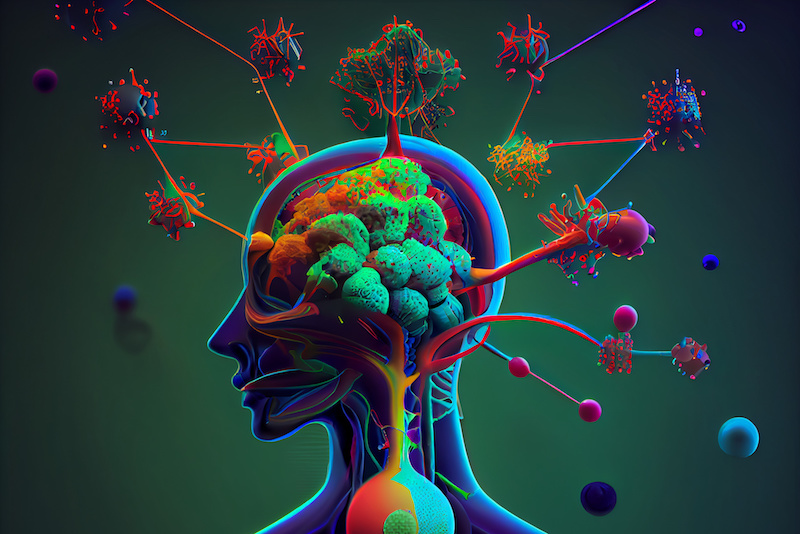
The Endocannabinoid System (ECS) and Bipolar Disorder
Mood Regulation: One of the key aspects of bipolar disorder is mood dysregulation, with individuals experiencing manic (elevated) and depressive (low) mood episodes. The ECS has receptors, particularly the CB1 receptor, which are found in areas of the brain associated with mood regulation. Endocannabinoids (cannabinoids made by the body) like anandamide and 2-arachidonoylglycerol (2AG) bind to these receptors and help modulate mood.
Stress Response: Stress is a significant trigger for mood episodes in individuals with bipolar disorder. The ECS is involved in the body’s stress response, helping to regulate the release of stress hormones like cortisol. Dysregulation of the ECS can impact how individuals with bipolar disorder respond to stress and contribute to mood instability.
Inflammation: Research shows that inflammation plays a crucial role in the development and course of bipolar disorder. The ECS has anti-inflammatory properties helps modulate immune responses. Dysfunctional ECS signaling leads to increased inflammation and exacerbation bipolar symptoms
Medication Effects: Medications used to treat bipolar disorder affect the ECS. For example, lithium, a commonly prescribed mood stabilizer, has been found to impact ECS function. Understanding these interactions is important for optimizing treatment.
Cannabinoids and Bipolar Disorder: Cannabinoids, such as cannabidiol (CBD) and tetrahydrocannabinol (THC), interact with the ECS. Studies have shown benefits in managing mood symptoms and reducing the frequency of mood episodes.
Additionally, the use of cannabinoids for bipolar disorder should be approached with caution and under the supervision of a trained provider.
It’s important to note that the relationship between the ECS and bipolar disorder is complex. Bipolar disorder is a multifactorial condition influenced by genetic, environmental, and neurobiological factors.